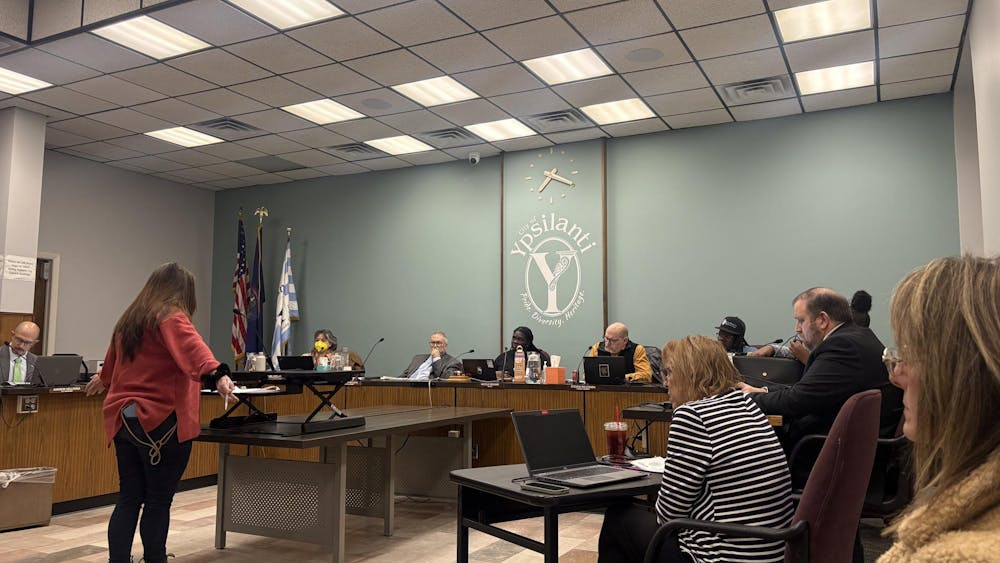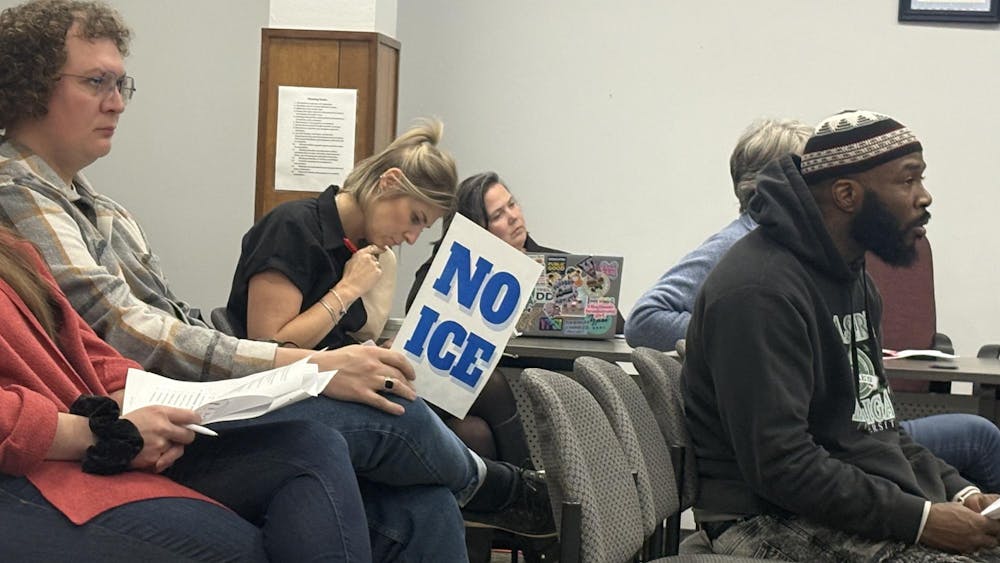Eastern Michigan University’s Latino Student Association held a showing of Peter Getzel’s “Harvest of Empire,” a documentary detailing the colonization of Latin America, on Thursday, Oct. 5 at Halle Library. Following the viewing, the audience and association held a discussion covering topics presented in the film, as well as any other question or concern the film inspired.
Before the picture began, the secretary of the LSA, Zereth Bustamante Luevano, said, “The first time I saw this, I learned things, and I’m from Mexico.”
The documentary heavily detailed the immigration of citizens from Puerto Rico, Mexico, Cuba, Nicaragua, Dominican Republic, and El Salvador to the U.S. Juan González, the author of the book of the same title which the documentary is based on, narrated much of the film, introducing immigration as “the most pressing domestic issue of our time.” The documentary was broken up into many pieces, each detailing extensively the history of, and subsequent urge for immigration in, the various countries listed prior.
Puerto Rico’s struggle was emphasized heavily by way of several writers, including journalist Geraldo Rivera and poet Martin Espada, whose fathers were born in Puerto Rico, giving them in-depth understanding of the need to come to America. Intermittent clips of presidents of the time explaining immigration’s status and haunting black and white clips of impoverished citizens backed this portion. The following countries followed the same pattern, with established interviewees giving their personal takes on parents or themselves having immigrated to the U.S., paired with various videos of political protests and tyrannous rulers.
An eye-opening experience, “Harvest of Empire” touched on many pieces of history which aren’t regularly taught, like the number of immigrants in the U.S. today for each respective nation, the patrolling of the border between the U.S. and Mexico, the role of U.S. ambassadors in the situation, and other minute factors which lead to immigration.
After the viewing, a discussion ensued which questioned points of the documentary, adding context and lesson to the film. The Social Justice Chair of LSA, Júlia Miyahara, started asking the audience their feelings. Many exclaimed at once, describing the power in learning. Member Ayla Brooks expressed how different perspectives would be if we regularly learned of Latin America’s history, saying it’s “crazy we don’t learn.” Another student, President of LSA Maria Pomo, discussed her trips to Guatamala and her concern for being able to help. Of the relatively small group, many others gave their take of discomfort of the difficulty in immigration, especially with its current climate. Member Madison Greene ended the talk with a powerful proclamation: “When you’re around people you despise, for whatever reason, you’ve got to get over it.”
The documentary and subsequent discussion brought to light the extended and necessary history pertaining to the vast amount of immigration in the U.S. today. There seems to be a call for greater acceptance, and greater help and education on the subject.








